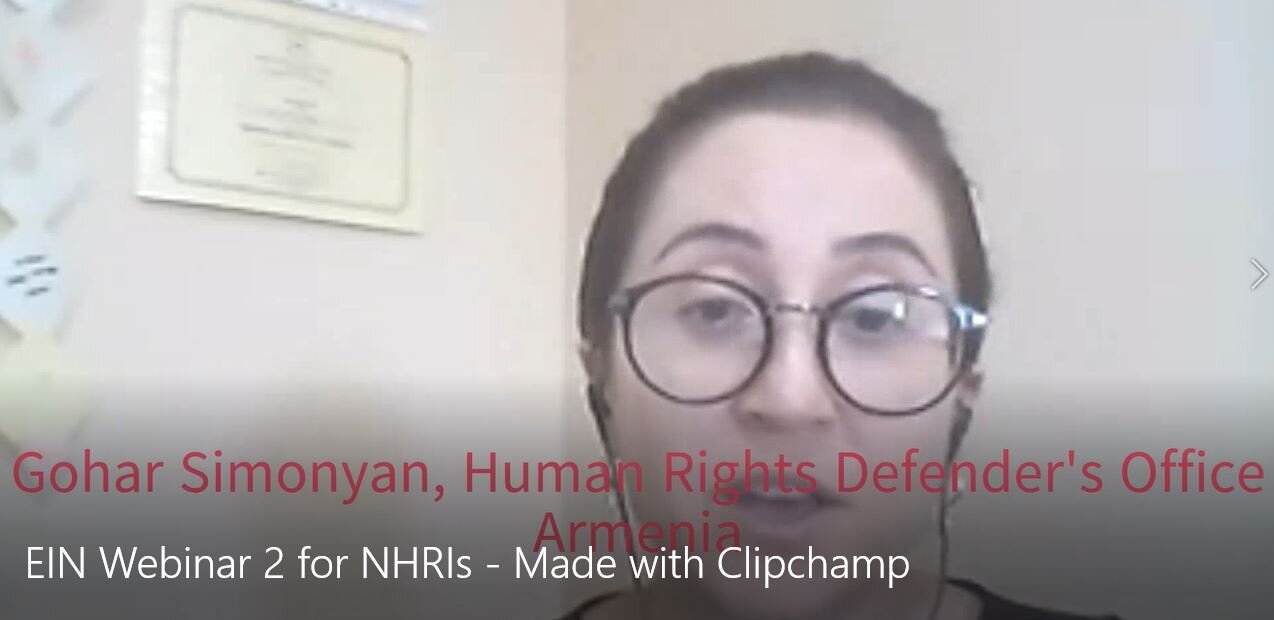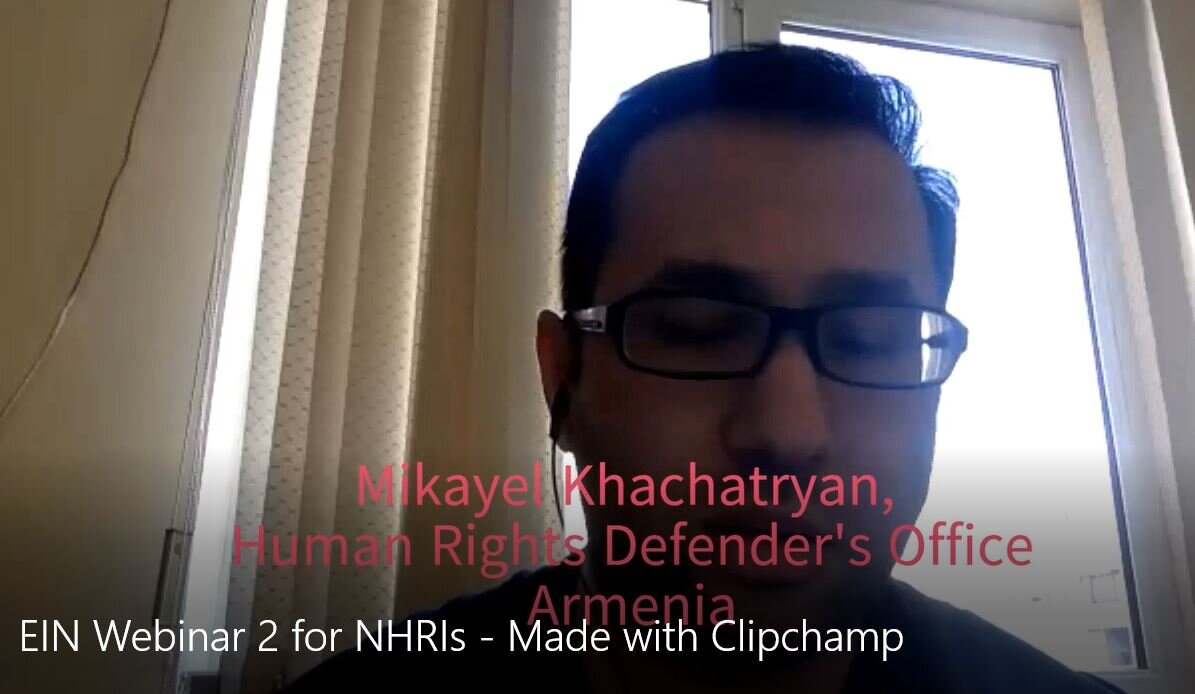EIN Webinar: How can NHRIs take part in the judgments implementation process?
/
One week after its introductory webinar, EIN organised an online training focused on how NHRIs can take part in the ECHR judgments implementation process.
There are various ways for NHRIs to take part in the ECHR judgment implementation process. One avenue is to take part in the Strasbourg-based supervisory mechanism, by submitting written communications to the Committee of Ministers (CM). Another crucial element is to put implementation onto the agenda at the national level.
Participants learned more about:
The basics of the CM execution process and what are the important elements to keep in mind when engaging into it
What they can do domestically to push for enhanced awareness of the importance of judgments’ implementation.
EIN Director George Stafford
After opening remarks by EIN Director George Stafford, Nikolas Sitaropoulos, Head of Division at the Department of the Execution of Judgments of the Council of Europe presented the CM execution process.
Head of Division Nikolas Sitaropoulos
Tamar Abazadze, Public Defender’s Office, Georgia
An experience sharing session followed. Tamar Abazadze, Head of the Analytical Department within the Public Defender’s Office (PDO) of Georgia, presented how the PDO used the CM process to put pressure on the authorities to make progress on new legislation. Her concrete example referred to the setting up of an independent State’s Inspector Service, which was achieved, among other things, following putting pressure put on the authorities through Rule 9 submissions.
Part 2 of the webinar then focused on how NHRIs could put implementation onto the agenda at the national level. Implementation of judgments indeed happen domestically. NHRIs have, through their mandate and the links they have with domestic actors, the possibility to push domestically for changes (in the legislation, in the practice) which are necessary to ensure that judgments are implemented. Be it through the setting up of relevant platforms with partners and NGOs, by providing training to police officers, for instance, or by communicating about the ECHR judgments and the measures to be taken to implement them. Mikayel Khachatryan, Head of the International Cooperation Department and Gohar Simonyan, Coordinator of the National Preventive Mechanism Implementation, Human Rights Defender’s Office of Armenia, shared their experience in this context. They presented to their colleagues how the Human Rights Defender’s Office of Armenia was using Adjunct Counsels and training seminars to enhance the involvement and capacity of NGOs to take part in the ECHR judgments’ implementation process. You can download their power point presentations here.
You can have access to the full video of the webinar here.
Webinar 3 will take place on 8th October, and will focus on “Towards an effective domestic advocacy strategy for the implementation of ECHR judgments”. This series of webinars is organised in cooperation with ENNHRI and the Council of Europe.





